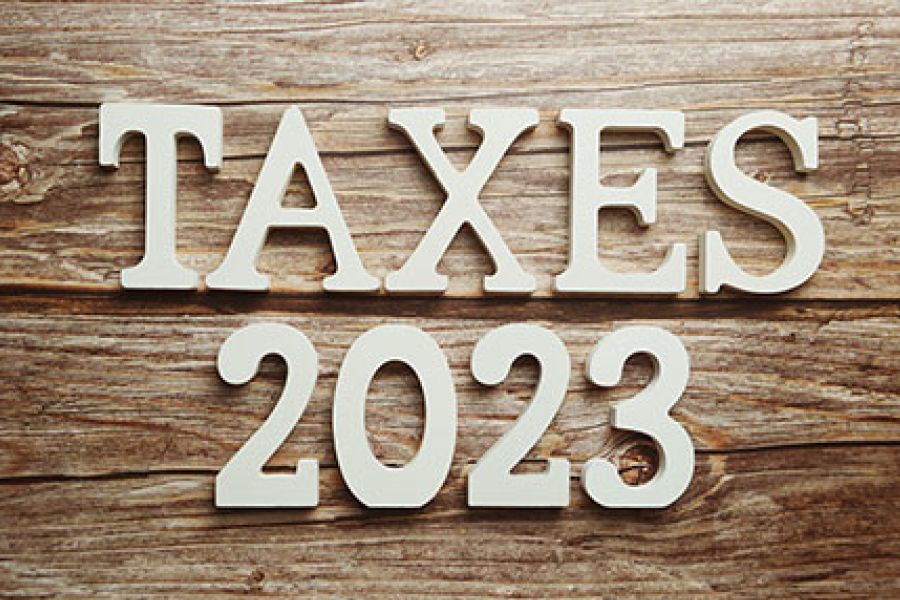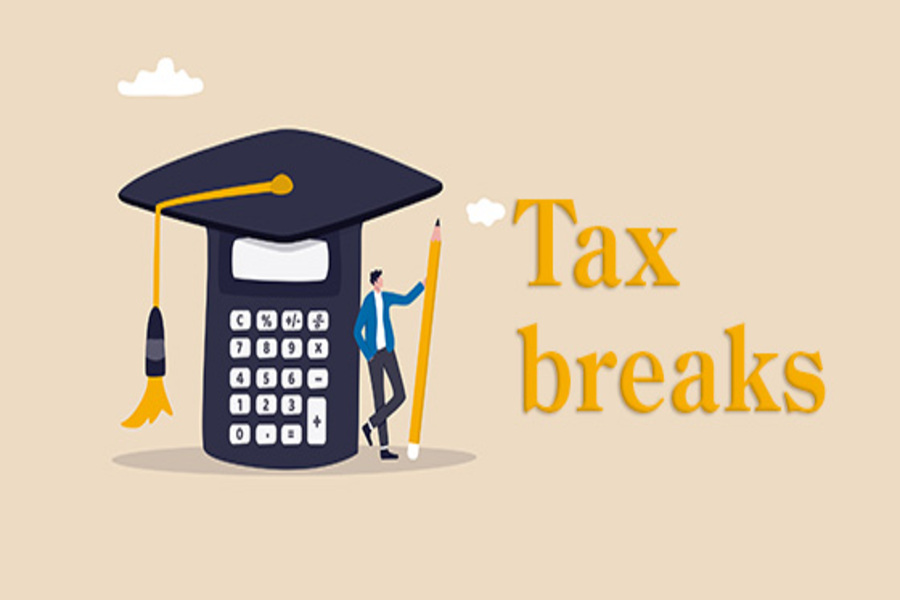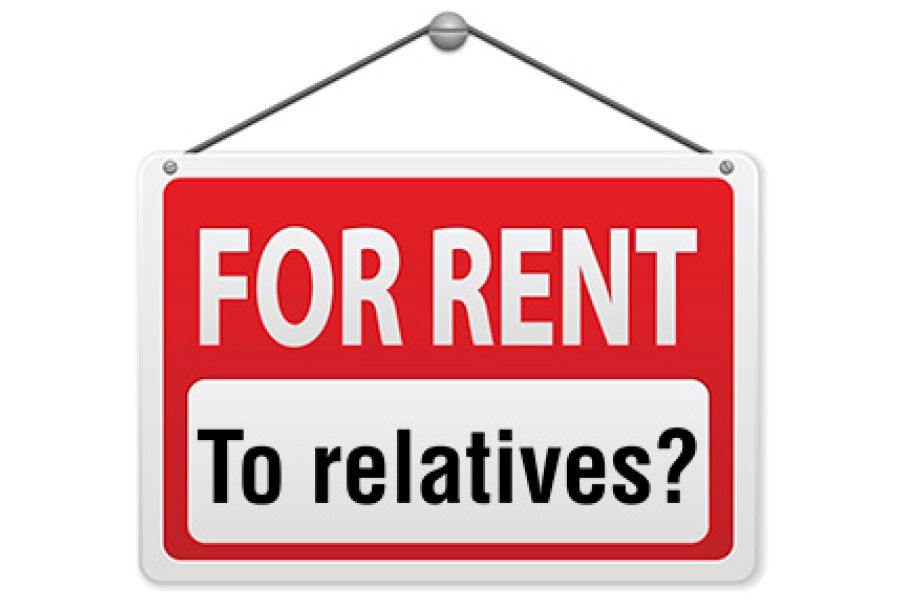Many people are more concerned about their 2022 tax bills right now than they are about their 2023 tax situations. That’s understandable because your 2022 individual tax return is due to be filed in 10 weeks (unless you file an extension). However, it’s a good time to familiarize yourself with tax amounts that may have changed for 2023. Due to inflation, many amounts have been raised more than in past years. Below are some Q&As about tax limits for this year. Note: Not all tax figures are adjusted annually for inflation and some amounts only change when new laws are enacted. I didn’t qualify to itemize deductions on my last tax return. Will I qualify for 2023? In 2017, a law was enacted that eliminated the tax benefit of...

Most retirement plan distributions are subject to income tax and may be subject to an additional penalty if you take an early withdrawal. What’s considered early? In general, it’s when participants take money out of a traditional IRA or other qualified retirement plan before age 59½. Such distributions are generally taxable and may be subject to a 10% penalty tax. Note: The additional penalty tax is 25% if you take a distribution from a SIMPLE IRA in the first two years you participate in the SIMPLE IRA plan. Fortunately, there are several ways that the penalty tax (but not the regular income tax) can be avoided. However, the rules are complex. As the taxpayer in one new court case found, if you don’t meet the requirements, you’ll...
The IRS announced it opened the 2023 individual income tax return filing season on January 23. That’s when the agency began accepting and processing 2022 tax year returns. Even if you typically don’t file until much closer to the mid-April deadline (or you file for an extension), consider filing earlier this year. The reason is you can potentially protect yourself from tax identity theft. Here are some answers to questions taxpayers may have about filing. How can your tax identity be stolen? In a typical tax identity theft scam, a thief uses another individual’s personal information to file a fraudulent tax return early in the filing season and claim a bogus refund. The actual taxpayer discovers the fraud when he or she files a return and is told by...
If you have a child or grandchild in college — congratulations! To help pay for the expenses, many parents and grandparents saved for years in tax-favored accounts, such as 529 plans. But there are also a number of tax breaks that you may be able to claim once your child begins attending college or post-secondary school. Tuition tax credits You can take the American Opportunity Tax Credit (AOTC) of up to $2,500 per student for the first four years of college — a 100% credit for the first $2,000 in tuition, fees, and books, and a 25% credit for the second $2,000. You can take a Lifetime Learning Credit (LLC) of up to $2,000 per family for every additional year of college or graduate school — a...
If you’re a parent or grandparent with college-bound children, you may want to save to fund future education costs. Here are several approaches to take maximum advantage of the tax-favored ways to save that may be available to you. Savings bonds Series EE U.S. savings bonds offer two tax-saving opportunities when used to finance college expenses: You don’t have to report the interest on the bonds for federal tax purposes until the bonds are cashed in, and Interest on “qualified” Series EE (and Series I) bonds may be exempt from federal tax if the bond proceeds are used for qualified college expenses. To qualify for the college tax exemption, you must purchase the bonds in your own name (not the child’s) or jointly with your spouse. The proceeds...
On 2/3/2023, the IRS issued Notice 2023-16 guidance that modifies the definitions of certain vehicle classifications for the new, previously owned and qualified commercial clean vehicle tax credits. As a result of this notice, the IRS updated the related frequently asked questions for these credits which can be found on IRS Fact Sheet 2023-4 here: IRS Fact Sheet 2023-04 (This is Blog Post #1340)...
A new law was recently signed that will help Americans save more for retirement, although many of the provisions don’t kick in for a few years. The Setting Every Community Up for Retirement Enhancement 2.0 Act (SECURE 2.0) was signed into law on December 29, 2022. SECURE 2.0 is meant to build on the original SECURE Act of 2019, which made major changes to the required minimum distribution (RMD) rules and other retirement provisions. Here are some of the significant retirement plan changes and when they’ll become effective: The age for beginning RMDs is going up. Employer-sponsored qualified retirement plans, traditional IRAs and individual retirement annuities are subject to RMD rules. They require that benefits start being distributed by the required beginning date. Under the new law,...
On January 10, 2023, IRS news release IR-2023-03 announced that California storm victims now have until May 15, 2023, to file various federal individual and business tax returns and make tax payments. The IRS is offering relief to any area designated by the Federal Emergency Management Agency (FEMA). This means that individuals and households that reside or have a business in Alameda, Colusa, Contra Costa, El Dorado, Fresno, Glenn, Humboldt, Kings, Lake, Los Angeles, Madera, Marin, Mariposa, Mendocino, Merced, Mono, Monterey, Napa, Orange, Placer, Riverside, Sacramento, San Benito, San Bernardino, San Diego, San Francisco, San Joaquin, San Luis Obispo, San Mateo, Santa Barbara, Santa Clara, Santa Cruz, Solano, Sonoma, Stanislaus, Sutter, Tehama, Tulare, Ventura, Yolo and Yuba counties qualify for tax relief. On January 11, 2023, the...
The Clean Vehicle Credit, brought to you by the Inflation Reduction Act of 2022 (IRA '22), is the successor to the New Qualified Plug-in Electric Drive Motor Vehicle Credit. The credit generally applies to vehicles having at least 4 wheels that are placed in service from 1/1/2023 - 12/31/2032. This post is broken down into the following sections: Credits for New Clean Vehicles Purchased in 2023 or After Credits for New Plug-in EVs Purchased before 2023 Used Clean Vehicle Credit Commercial Clean Vehicle Credit CREDITS FOR NEW CLEAN VEHICLES PURCHASED IN 2023 OR AFTER If you buy a new plug-in electric vehicle (EV) or fuel cell vehicle (FCV) in 2023 or after, you may qualify for a clean vehicle tax credit. Who Qualifies You may qualify for a credit...
If you own a home and rent it to a relative, you may be surprised to find out there could be tax consequences. Quick rundown of the rules Renting out a home or apartment that you own may result in a tax loss for you, even if the rental income is more than your operating costs. You’ll be entitled to a depreciation deduction for your cost of the house or apartment (except for the portion allocated to the land). However, if your tenant is related to you, special rules and limitations may apply. For this purpose, “related” means a spouse, child, grandchild, parent, grandparent or sibling. No limitations apply if: You rent a home to a relative who uses it as his or her principal residence (that is,...











